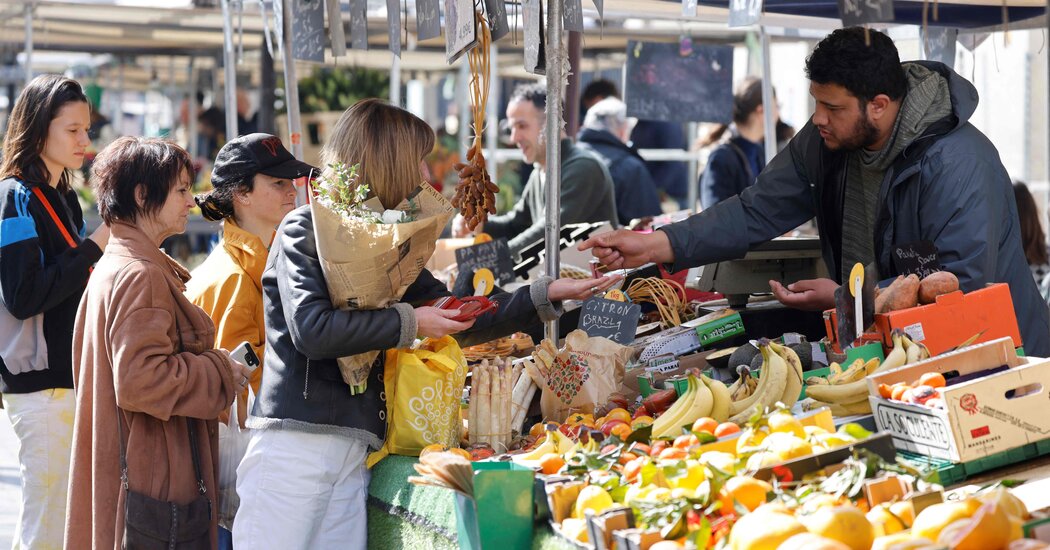PARIS — Soaring food and energy prices driven by Russia’s continued aggression against Ukraine pushed inflation in Europe last month to levels not seen in four decades, with prices in the 19 countries that use the euro soaring 7.5 percent, according to data released Friday by Europe’s statistics agency.
Energy costs jumped nearly 45 percent in March from a year ago, as the conflict has caused dizzying spikes in natural gas, electricity and oil prices that have pushed Europe and the United States to make ambitious plans to reduce reliance on Russian energy.
Food inflation continued to surge, with supplies of crucial commodities trapped in Russia and Ukraine, which together produce a major portion of the world’s wheat, corn and barley. Prices for unprocessed food advanced an annualized 7.8 percent, Eurostat said. Since the invasion last month, global wheat prices have increased by 21 percent, barley by 33 percent and some fertilizers by 40 percent, threatening a food crisis.
Even without food and energy, core inflation in the eurozone also continued to rise as inflation in goods and services accelerated.
The biggest increases were recorded in Lithuania (15.6 percent), Estonia (14.8 percent) and the Netherlands (11.9 percent). Consumer prices in Germany, Europe’s largest economy, leaped 7.6 percent compared with last year, and hit 9.8 percent in Spain.
The continued run-up in prices from already record levels underscores how rapidly the impact of the war in Ukraine is coursing through Europe’s economy, putting pressure on the European Central Bank to begin raising interest rates before the end of the year.
On Wednesday, the central bank’s president, Christine Lagarde, said she expected food and energy prices in the eurozone to stabilize at high levels, allowing the area to avoid falling into a quagmire of high inflation and stagnant growth. The bank recently announced plans to scale back some of its bond-buying stimulus measures.
But analysts say much more pain lies ahead, as the war keeps upward pressure on prices, and persistently high energy costs reverberate through the economy.The war has also added to the strain on supply chains that were already stretched by the Covid-19 pandemic, continuing to press on producer prices and the cost of goods for consumers.
“The question is whether the worst is behind us now, and that seems doubtful,” Bert Colijn, a senior eurozone economist at ING Bank, wrote in a note to clients, adding that the prospect of double-digit inflation “cannot be ruled out at this point.”

